- Home
- Conn Iggulden
Bones Of the Hills c-3 Page 10
Bones Of the Hills c-3 Read online
Page 10
Yao Shu readied himself, dropping slightly on bent legs so that he was in perfect balance. He could not defeat so many, but he was once again ready to teach.
Eight men fell into the centre of the circle and Yao Shu almost slipped between two and was away. By chance, one of them snagged his robe. Yao Shu felt fingers slip over the skin of his skull and he brought his head back sharply. The hard fingers vanished and the monk struck out with his right foot. Another man fell back with a cry, his knee shattered, but by then they had struck him many times and Yao Shu was dazed. He still hammered blows with hands, knees and head wherever he could, but they knocked him down. The heavy sticks rose and fell with mindless anger. He did not cry out, even when one of them stamped on his right foot and broke the small bones.
Before he lost consciousness, Yao Shu thought he heard Kachiun’s voice shouting and felt the hands on him falling away. The words of his own teachers spiralled in his mind then as he collapsed in the snow. They had told him that holding on to anger was like grasping a hot coal. Only he would be burned by it. Yet as the men scattered and he felt strong arms lift him up, Yao Shu held the hot coal closely and felt only warmth.
CHAPTER EIGHT
Yao Shu looked up as Kachiun came into the ger where the wounded were treated. By day, sick men and women travelled on the carts, well wrapped in furs. There were always some who needed a poisoned toe lanced or a wound bound. Yao Shu knew three of the men with him. They were the ones he had injured himself. He had not spoken to them and they seemed embarrassed by his silence and would not meet his eyes.
Kachiun brightened as he greeted Jochi, sitting on the edge of his bed and chatting lightly with him. He admired the striped tiger skin at Jochi’s feet, running his hands over the stiff folds and flattened head as they talked. Yao Shu could see the two men were friends. Tsubodai too visited each dawn and, despite his seclusion, Jochi was well informed. Yao Shu watched the pair talk with some curiosity as he tested the splints on his foot and winced.
When conversation died away, Kachiun turned to the monk, visibly searching for words. He knew as well as anyone that it could only have been Chagatai who ordered the beating. He knew also that it would never be proven. Chagatai strutted around the camp and there were more than a few warriors who looked on him with approval. There was no shame for them in taking revenge and Kachiun could guess what Genghis thought about it. The khan would not have relied on others to make his point, but he would not have lost sleep about it if he had. The camp was a hard world and Kachiun wondered how to explain that to Yao Shu.
‘Kokchu says you will be walking in just a few weeks,’ he said.
Yao Shu shrugged.
‘I heal, general. The body is just an animal, after all. Dogs and foxes heal and so do I.’
‘I have not heard anything else about the men who attacked you,’ Kachiun lied. Yao Shu’s eyes drifted to the others in the small ger and Kachiun flushed slightly. ‘There is always someone fighting in the camp,’ he said, spreading his hands.
Yao Shu looked calmly at him, surprised that the general seemed to be feeling guilt. He had played no part in it, after all, and was he responsible for Chagatai? He was not. In fact, the beating could have been much worse if Kachiun had not come and scattered them. The warriors had vanished back to their gers, bearing their wounded away. Yao Shu suspected Kachiun could have named each one if he wanted to, perhaps with the names of their families as well. It did not matter. The Mongols loved revenge, but Yao Shu felt no anger towards young fools following orders. He had vowed to teach Chagatai another lesson in the fullness of time.
It troubled the monk that his faith came second to such a base desire, but he still relished the prospect. He could hardly speak of it with Chagatai’s own men in the ger, but they too were healing and it would not be long before he was alone with Jochi. Though he might have gained an enemy in Chagatai, Yao Shu had seen the fight with the tiger. As he glanced at the great striped skin draped over Jochi’s low bed, he thought he had surely gained an ally as well. The Xi Xia princess would be pleased, he thought wryly.
Kachiun stood automatically when he heard Genghis’ voice outside. The khan entered and Yao Shu saw his whole face was swollen and red, the left eye almost closed.
The khan registered the presence of the men in the ger and nodded to Yao Shu before speaking to Kachiun. He ignored Jochi as if he were not present.
‘Where is Kokchu, brother? I have to get this broken tooth out of my head.’
The shaman came in as he spoke, bringing with him the strange odour that made Yao Shu wrinkle his nose. He could not like the skinny magic worker. He had found the shaman competent at splinting broken bones, but Kokchu treated the sick as if they were an annoyance, then fawned on the generals and Genghis himself without shame.
‘The tooth, Kokchu,’ Genghis growled. ‘It is time.’
Sweat beaded his brow and Yao Shu guessed he was in great pain, though the khan made a fetish of never showing it. Yao Shu sometimes wondered if they were insane, these Mongols. Pain was merely a part of life, to be embraced and understood, not crushed.
‘Yes, lord khan,’ Kokchu replied. ‘I will take it out and give you herbs for the swelling. Lie back, lord, and open your mouth as far as you can.’
With an ill grace, Genghis took the last bed in the ger and tilted his head far enough so that Yao Shu could see inflamed flesh. The Mongols had very good teeth, he thought. The brown stump looked out of place in the white ones. Yao Shu wondered if their diet of meat was responsible for their strength and violence. He shunned flesh himself, believing it to be responsible for bad humours in the blood. Still, the Mongols seemed to thrive on it, bad humours and all.
Kokchu unrolled a leather tube to reveal a small pair of blacksmith’s pincers and a set of narrow knives. Yao Shu saw Genghis’ eyes swivel to see the tools, then the khan met his gaze and a stillness came over him that was impressive to watch. The man had decided to treat the ordeal as a test, Yao Shu could see. The monk wondered if his self-discipline would hold.
Kokchu clacked the ends of the pincers together and took a deep breath to steady his hands. He looked into the khan’s open mouth and pursed his lips.
‘I will be as quick as I can, lord, but I have to take out the root.’
‘Do your work, shaman. Get it out,’ Genghis snapped and again Yao Shu saw the pain must have been immense for him to speak in such a way. As Kokchu probed the broken tooth, the khan clenched his hands then let them fall loose, lying as if he slept.
Yao Shu watched with interest as Kokchu dug deep with the pincers, trying to get a purchase. The metal tool slipped twice as he brought pressure to bear. With a grimace, the shaman turned back to his roll and selected a knife.
‘I have to cut the gum, lord,’ he said nervously.
Yao Shu could see the shaman was shaking as if his own life was at stake. Perhaps it was. Genghis did not bother to reply, though once again the hands tensed and relaxed as he fought his body for control. The khan stiffened as Kokchu leaned on the knife, digging deeply. Genghis choked on a flood of pus and blood, waving Kokchu away so he could spit on the floor before settling back. His eyes were wild, Yao Shu saw, quietly awed at the man’s strength of will.
Once more, Kokchu cut and jerked the blade, then reached in with the pincers, took a grip and heaved. The shaman almost fell as a long shard of root came out and Genghis grunted, rising to spit once more.
‘That is almost all of it, lord,’ the shaman said.
Genghis glared at him, then lay back again. The second piece came out quickly and the khan sat up, holding his aching jaw and clearly relieved to have it end. The rim of his mouth was red and Yao Shu watched as Genghis swallowed bitterness.
Jochi too had observed the extraction, though he had tried to make it look as if he hadn’t. As Genghis rose again, Jochi lay back on his bed and stared at the ribs of birch that made up the ceiling of the ger. Yao Shu thought the khan would leave without speaking to his son and was sur
prised when Genghis paused and tapped Jochi on the leg.
‘You can walk, can’t you?’ Genghis said.
Jochi turned his head slowly.
‘Yes, I can walk.’
‘Then you can ride.’ Genghis noticed the wolf’s-head sword that Jochi never let out of his sight and his right hand twitched to hold it. It rested on the tiger skin and Genghis ran his fingers through the stiff fur.
‘If you can walk, you can ride,’ Genghis told him again. He might have turned away then, but some impulse held him in place.
‘I thought that cat would kill you,’ Genghis said.
‘It nearly did,’ Jochi replied.
To his surprise, Genghis grinned at him, showing red teeth.
‘Still, you beat it. You have a tuman and we ride to conquer.’
Yao Shu saw that the khan was trying to mend bridges between them. Jochi would command ten thousand men, a position of immense trust and not lightly given. To Yao Shu’s private disappointment, Jochi sneered.
‘What else could I possibly want from you, my lord?’
A stillness came into the ger then, until Genghis shrugged.
‘As you say, boy. I have given you more than enough.’
The stream of carts and animals took days to spill out of the mountains to the plains. To the south and west lay the cities ruled by Shah Mohammed. Every man and woman of the people had heard of the challenge to their khan and the deaths of their envoys. They were impatient to bring vengeance.
Around the core of the people, scouts rode out in wide circles as they moved, leaving the cold mountains behind. The generals had gambled with knuckle bones for the right to take a tuman raiding and it had been Jebe who had thrown four horses and won. When Genghis heard, he summoned Arslan’s replacement to him for orders. Jebe had found the khan with his brothers, deep in conversation as they planned the war to come. When Genghis finally noticed the young man standing by the door, he nodded to him, barely looking up from new maps being drawn with charcoal and ink.
‘I need information more than piles of the dead, general,’ Genghis said. ‘The shah can call on cities as great as any in Chin lands. We must meet his armies, but when we do, it will be on my terms. Until that day, I need everything you can learn. If a town has less than two hundred warriors, let them surrender. Send their traders and merchants to me, men who know a little of the world around them.’
‘And if they will not surrender, lord?’ Jebe asked.
Khasar chuckled without looking up, but the khan’s yellow gaze lifted from the maps.
‘Then clear the way,’ Genghis replied.
As Jebe turned to leave, Genghis whistled softly. Jebe turned to him questioningly.
‘They are your warriors now, Jebe, not mine, nor any other man here. They will look to you first. Remember that. I have seen brave warriors who broke and ran, then stood against impossible odds just a few months later. The only difference was that their officers had changed. Never believe another man can do your job. You understand?’
‘Yes, lord,’ Jebe replied. He had struggled not to show his delight, though he felt light-headed with it. It was his first independent command. Ten thousand men would look to him alone, their lives and honour in his hands. Genghis smiled wryly to himself, fully aware of the young man’s sweating palms and thumping heart.
‘Then go,’ the khan said, returning to his maps.
On a spring morning, Jebe rode out with ten thousand veterans, eager to make his name. Within just a few days, Arab merchants rode into the camp as if the devil himself was behind them. They were willing to barter and sell information to this new force in the land and Genghis welcomed a stream of them to his ger, sending them away with their pouches full of silver. Behind them, distant plumes of smoke rose sluggishly into the heat.
Jochi joined his men two days after he had seen Genghis in the ger for the sick. He was thin and pale from six weeks of seclusion, but he mounted his favourite horse stiffly, setting his jaw against the pain. His left arm was splinted and the wounds on his legs cracked and wept, but he smiled as he trotted to the ranks. His men had been told he was coming and they formed up to greet their general and the khan’s first son. Jochi’s expression remained stern, concentrating on his own weakness. He raised a hand in greeting and they cheered his survival and the tiger skin he had placed between the saddle and the horse’s skin. The dried head would always snarl at his pommel.
When he took his place in the front rank, he turned his pony and looked back at the men his father had given him. Of the ten thousand, more than four were from the Chin cities. They were mounted and armoured in the Mongol style, but he knew they could not shoot arrows as fast or as well as his brethren. Two thousand more were from the Turkic tribes to the north and west, dark-skinned men who knew the Arab lands better than the Mongols themselves. He thought his father had given them to Jochi as those of lesser blood, but they were fierce and they knew the ground and the hunting. Jochi was pleased with them. The last four thousand were of the people: the Naimans, the Oirat and the Jajirat. Jochi cast his gaze over their ranks and it was there that he sensed a weakness in their grim faces. The Mongols knew Jochi was not a favourite son of the khan, perhaps not even his son at all. He read subtle doubt in the way they looked at each other and did not cheer as lustily as the others.
Jochi felt his energy flag and summoned his will. He would have liked longer for his arm to heal. Yet he had seen Tsubodai bind men together and he was eager to begin the work.
‘I see men before me,’ he called to them. His voice was strong and many grinned. ‘I see warriors, but I do not yet see an army.’
The grins faltered and he gestured to the vast array of carts rolling out of the mountains behind them.
‘Our people have enough men to keep out the wolves,’ he said. ‘Ride with me today and I will see what I can make of you.’
He dug in his heels, though his legs had already begun to ache. Behind him, ten thousand men began to trot out onto the plains. He would run them ragged, he told himself, until they were blind with exhaustion, or until his limbs hurt so much he could not stand it any longer. Jochi smiled at the thought. He would endure. He always had.
The city of Otrar was one of the many jewels of Khwarezm, made rich at the crossroads of ancient empires. It had guarded the west for a thousand years, taking a part of the wealth that flowed along the trade roads. Its walls protected thousands of brick houses, some of them three storeys high and painted white against the hard sun. The streets were always busy and a man could buy anything in the world in Otrar, if he had enough gold. Its governor, Inalchuk, gave offerings each day in the mosque and made public displays of his devotion to the teachings of the prophet. In private, he drank forbidden wine and kept a house of women chosen from the slaves of a dozen races, all picked for his pleasure.
As the sun dipped towards the hills, Otrar cooled slowly and the streets lost their mad energy as men and women returned home. Inalchuk wiped sweat from his eyes and lunged at his sword instructor. The man was quick and there were times when Inalchuk thought he allowed his master to take points. He did not mind as long as the instructor was clever. If he left too obvious an opening, Inalchuk struck with greater force, leaving a welt or a bruise. It was a game, as all things were games.
Out of the corner of his eye, Inalchuk saw his chief scribe halt on the edge of the courtyard. His instructor darted at him to punish the moment of inattention and Inalchuk fell back before striking low so that the point of his blunt sword sank into the man’s stomach. The instructor fell heavily and Inalchuk laughed.
‘You will not tempt me to lift you up, Akram. Once is enough for each trick.’
The instructor smiled and leapt to his feet, but the light was fading and Inalchuk bowed to him before handing over the blade.
As the sun set, Inalchuk heard the voices of the muezzins call the greatness of God across Otrar. It was time for evening prayers and the courtyard began to fill with the members of his househ
old. They carried mats and lined up in rows, their heads bowed. Inalchuk led them in the responses, the thoughts and worries of the day vanishing as he took the first position.
As they chanted in unison, Inalchuk looked forward to breaking the day’s fast. Ramadan was close to its end and even he did not dare to ignore its disciplines. Servants chattered like birds and he knew better than to provide them with evidence against him for the shari’a courts. As he prostrated himself, touching his forehead to the ground, he thought of the women he would choose to bathe him. Even in the holy month, all things were possible after sunset, and there at least could a man be king in his own home. He would have honey brought and dribble it onto the back of his current favourite as he enjoyed her.
‘Allahu Akbar!’ he said aloud. God is great. Honey was a wonderful thing, he thought, the gift of Allah to all men. Inalchuk could have eaten it every day if it were not for his expanding waist. There was a price for every pleasure, it seemed.
He prostrated himself once more, a model of piety in front of his household. The sun had set during the ritual and Inalchuk was starving. He rolled up his prayer mat and walked swiftly through the yard, his scribe falling in behind him.
‘Where is the army of the khan?’ Inalchuk called over his shoulder.
His scribe fussed with a sheaf of papers as he always did, though Inalchuk did not doubt he had the answer ready. Zayed bin Saleh had grown old in his service, but age had not dulled his intelligence.
‘The Mongol army moves slowly, master,’ Zayed said. ‘Allah be thanked for that. They darken the earth all the way back to the mountains.’
Inalchuk frowned, the image of honey-covered skin vanishing from his imagination.
‘More than we thought before?’
‘Perhaps a hundred thousand fighting men, master, though I cannot be sure with so many carts. They ride as a great snake on the land.’
Inalchuk smiled at the image.
‘Even such a snake has but one head, Zayed. If the khan is troublesome, I will have the Assassins cut it off.’

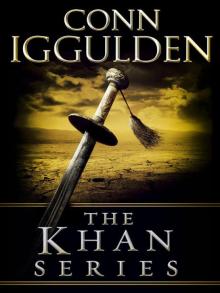 The Khan Series 5-Book Bundle
The Khan Series 5-Book Bundle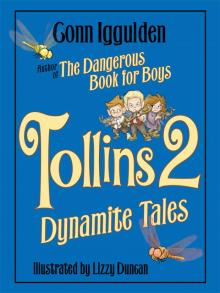 Tollins 2: Dynamite Tales
Tollins 2: Dynamite Tales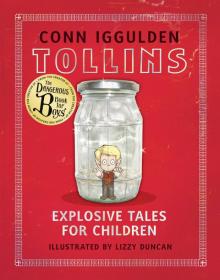 Tollins: Explosive Tales for Children
Tollins: Explosive Tales for Children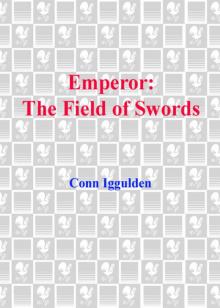 The Field of Swords
The Field of Swords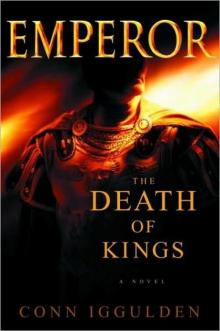 The Death of Kings
The Death of Kings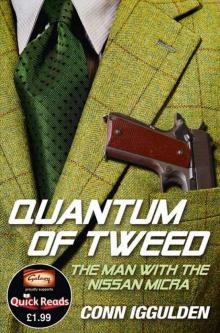 Quantum of Tweed: The Man With the Nissan Micra
Quantum of Tweed: The Man With the Nissan Micra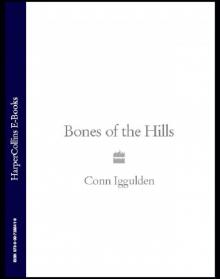 Bones of the Hills
Bones of the Hills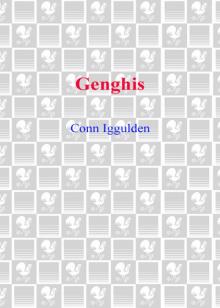 Genghis: Birth of an Empire
Genghis: Birth of an Empire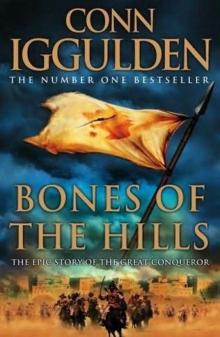 The Gates of Rome
The Gates of Rome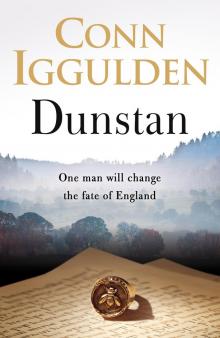 Dunstan
Dunstan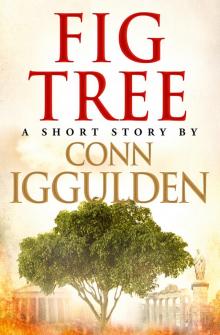 Fig Tree
Fig Tree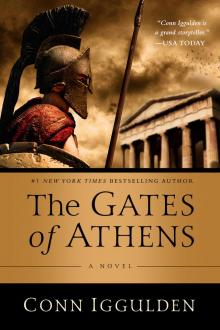 The Gates of Athens
The Gates of Athens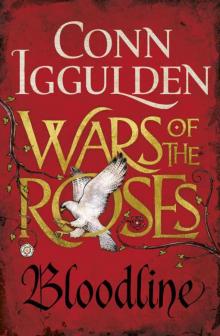 Stormbird
Stormbird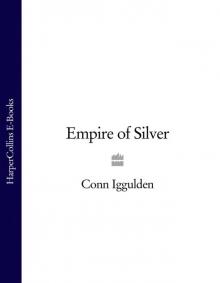 Khan: Empire of Silver
Khan: Empire of Silver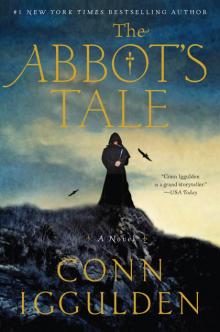 The Abbot's Tale
The Abbot's Tale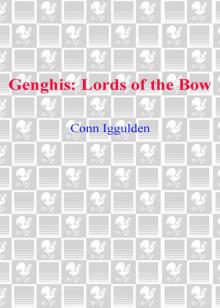 Gengis: Lords of the Bow
Gengis: Lords of the Bow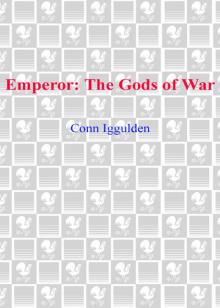 The Gods of War
The Gods of War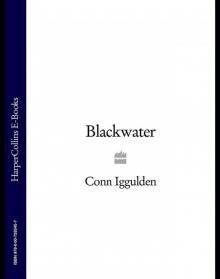 Blackwater
Blackwater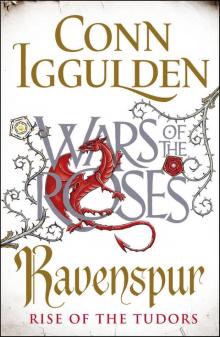 Ravenspur: Rise of the Tudors
Ravenspur: Rise of the Tudors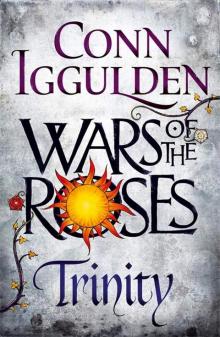 Wars of the Roses: Trinity (War of the Roses Book 2)
Wars of the Roses: Trinity (War of the Roses Book 2)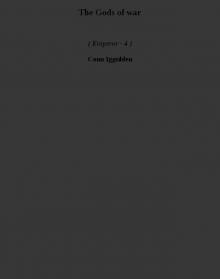 The Gods of war e-4
The Gods of war e-4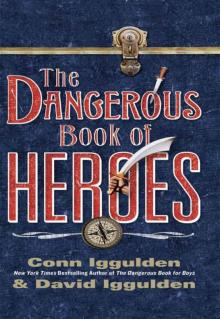 The Dangerous Book of Heroes
The Dangerous Book of Heroes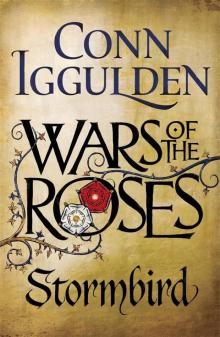 Stormbird wotr-1
Stormbird wotr-1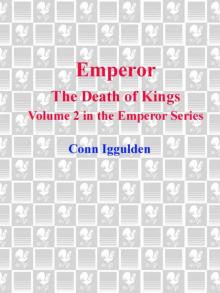 Emperor: The Death of Kings
Emperor: The Death of Kings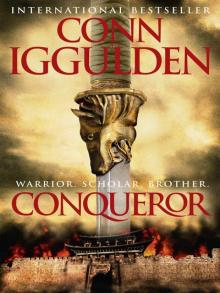 Conqueror (2011) c-5
Conqueror (2011) c-5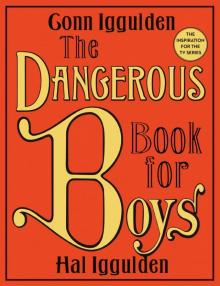 The Dangerous Book for Boys
The Dangerous Book for Boys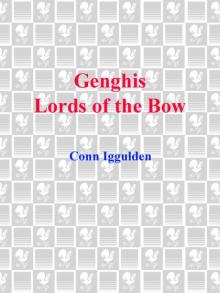 Genghis Lords of the Bow
Genghis Lords of the Bow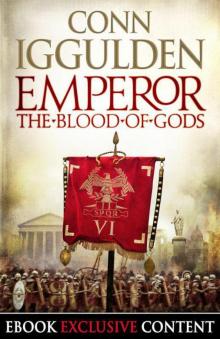 Emperor: The Blood of Gods (Special Edition) (Emperor Series, Book 5)
Emperor: The Blood of Gods (Special Edition) (Emperor Series, Book 5)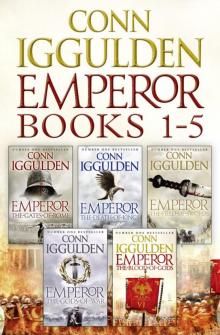 The Emperor Series: Books 1-5
The Emperor Series: Books 1-5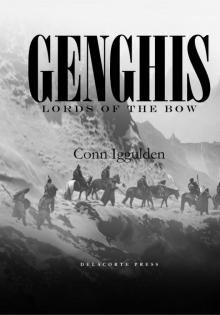 Lords of the Bow c-2
Lords of the Bow c-2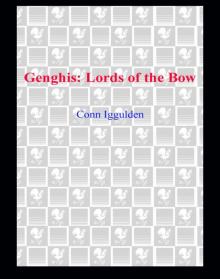 Lords of the Bow
Lords of the Bow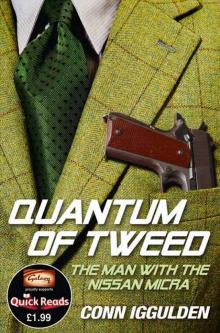 Quantum of Tweed
Quantum of Tweed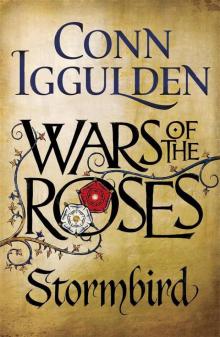 Wars of the Roses 01 - Stormbird
Wars of the Roses 01 - Stormbird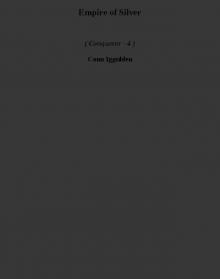 Empire of Silver c-4
Empire of Silver c-4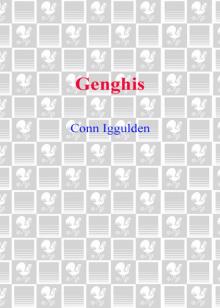 Birth of an Empire
Birth of an Empire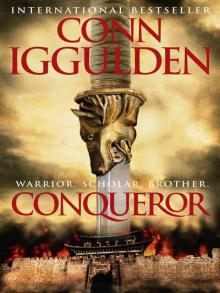 Conqueror (2011)
Conqueror (2011)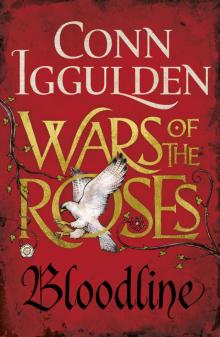 Wars of the Roses: Bloodline: Book 3 (The Wars of the Roses)
Wars of the Roses: Bloodline: Book 3 (The Wars of the Roses)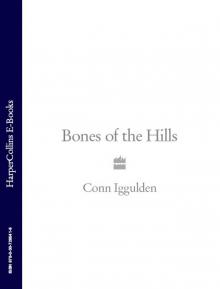 Bones Of the Hills c-3
Bones Of the Hills c-3 Empire of Silver
Empire of Silver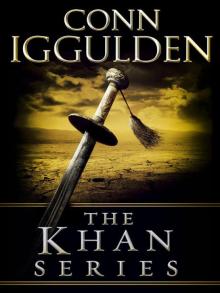 The Khan Series 5-Book Bundle: Genghis: Birth of an Empire, Genghis: Bones of the Hills, Genghis: Lords of the Bow, Khan: Empire of Silver, Conqueror
The Khan Series 5-Book Bundle: Genghis: Birth of an Empire, Genghis: Bones of the Hills, Genghis: Lords of the Bow, Khan: Empire of Silver, Conqueror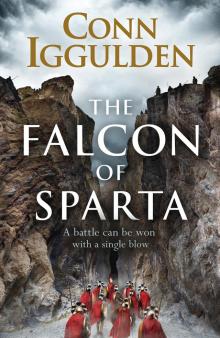 The Falcon of Sparta
The Falcon of Sparta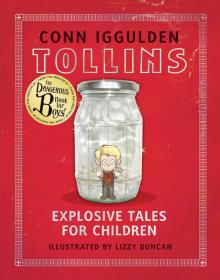 Explosive Tales for Children
Explosive Tales for Children